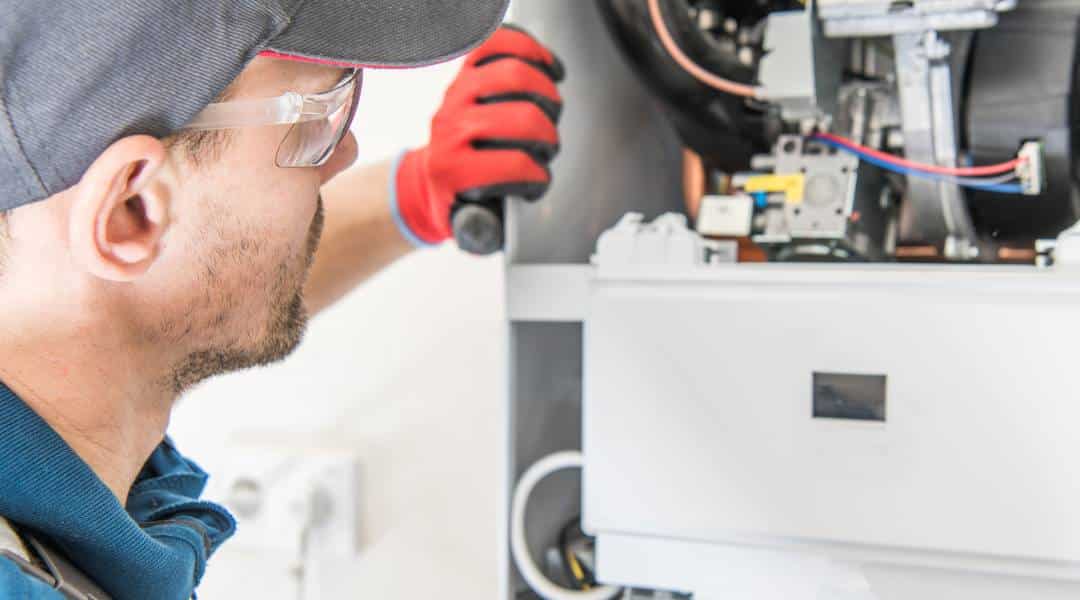Facing trouble with your water heater can throw a wrench in your daily routine. From not getting enough hot water to dealing with a unit that won’t heat up at all, these common issues require prompt attention. Luckily, many problems have straightforward fixes like checking the power source or resetting the high-temperature limit switch.
However, when tasks get too complex or if you’re based in Mesa, AZ, and prefer professional help, opting for expert water heater repair ensures swift resolution and peace of mind. Don’t let cold showers disrupt your day—understanding how to tackle these challenges makes all the difference.
Identify Your Water Heater Issue
Identifying your water heater issue is the first step to ensuring a steady supply of hot water in your home. If you notice that your unit isn’t heating, it could be due to a lack of power or malfunctioning components like a tripped limit switch or failed heating elements. Similarly, inadequate hot water might imply faulty heating elements, while too much heat suggests misadjusted thermostats set above 120°F.
Leaks can come from loose connections—tightening them often resolves this problem. Furthermore, rusty or smelly water indicates internal corrosion and bacterial presence; replacing the anode rod usually fixes this issue. For persistent noises during operation caused by sediment buildup at the tank’s bottom boiling its contents, draining should alleviate these sounds efficiently if you’re comfortable with DIY measures as outlined.
However, procuring professional help remains advisable for anything beyond basic troubleshooting. Local expertise, such as water heater repair in Mesa, AZ, stands ready to assist in maintaining optimal performance safely and effectively.
Troubleshooting Tips for Homeowners
If you’re dealing with lukewarm water, it might be from your tank’s size not fitting your family’s needs or thermostat troubles. Ensure the setting is right, between 120-140°F, for optimal heat. For noise due to sediment, turn off the heater and flush out using a hose until clear.
This cleanup should help. Facing cloudy or odd-smelling water? It could be bacteria or rust inside.
Replacing an old anode rod can fix rust issues effectively. Remember, while many fixes are DIY-friendly, certain problems demand expert attention to avoid bigger headaches down the road—never hesitate to call professionals if needed.
Maintaining Your Water Heater Performance
To keep your water heater in top shape, start by looking into any issues with either temperature or the quality of your hot water. If it’s not heating well, check for a tripped circuit breaker and ensure that power is flowing smoothly. It might also mean replacing parts like the thermostat or thermocouple if resetting doesn’t work.
For those facing lukewarm water, consider whether your tank size fits your needs or if there’s a mix-up between hot and cold connections. Sometimes, adjusting the thermostat can solve overheating problems—aim for about 120 degrees to avoid scalding temperatures. Leaks often signal bigger troubles, such as rust inside the tank; tightening loose bolts might offer a temporary fix, but persistent leaks require professional evaluation to decide on repairs versus replacement.
Likewise, unusual sounds usually point towards sediment buildup needing flush-out services from skilled plumbers. Water discoloration could hint at internal corrosion—a plumber swapping out anode rods may remedy this situation unless unit replacement becomes inevitable due to severe deterioration over time. For units struggling with ignition or lacking power connectivity, checking warranty options before resorting to replacements is wise—especially given their lifespan variability affected by maintenance frequency, among other factors.
Deciding between repair and outright replacement hinges on several variables, including age-related wear and potential costly damages. Scheduling regular checks, particularly when encountering cracking noises, significantly prolongs its utility and ensures sustained access to sufficiently warmed-up water.



